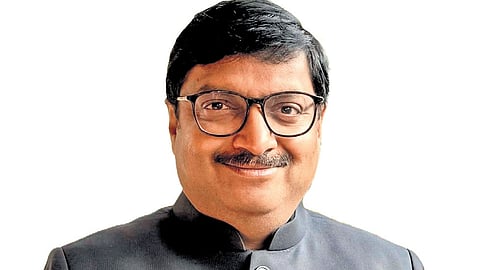

Shachindra Nath, Vice Chairman and MD, UGRO Capital, a tech-enabled small business loan platform, in an interaction with Dipak Mondal, says that the decade will see an explosion of MSME credit.
Edited excerpts:
Why do you think South India is such a big market for NBFCs – be it SME finance companies, microfinance or gold loan companies?
Small businesses are an outcome of three things -- one, prospering business, and second is stable governments, which are progressive. The third is the lending culture, the repayment behaviour. So, the repayment behaviour of, say, in Tamil Nadu or Telangana or Karnataka is much better than say a Punjab, UP or MP. Tamil Nadu is a bipolar political state, so it shifts between two parties. But the underlying economy actually continues to grow at a fast pace, irrespective of political dispensation. As for repayment behaviour, people take their loan fairly seriously in the South.
I keep saying that India is not one country purely from a lending perspective – South is a different market from the north. But that is now changing.
There is this perception that the government at the Centre is more focused on creating large corporations instead of focusing on small businesses?
MSMEs are the largest employer of the country, after agriculture. And for India to continue growing, or even for the governments to stay in power, they have to provide employment. And that’s why MSMEs are important for governments. If you look from 2014 to 2024, every year there have been some or other changes in policy to support MSME. During COVID, the government came up with schemes like an emergency credit line and partial credit guarantee -- all the schemes would support MSME. It was largely small businesses which received support from the government during Covid. There is a massive focus on MSMEs.
What are the factors helping expansion of credit to MSMEs?
Credit to MSME is possible because of formalization. Before demonetisation, MSMEs generated large cash income without any proper formal record of the revenue. With the demonetisation, there has been a psychological shift. People now fear that having too much of income in cash is risky. Then when GST got implemented, it started forcing people to get their turnover side of the data into the formal system. The third factor (helping MSME credit) is democratisation of Indian banking with digital payments. On one side, small businesses are getting formalized, on the other side, lenders have the ability to look at this kind of data, and do credit. And that’s why we keep saying that you will see an explosion of credit to MSME in this decade.
Tell us how you have benefitted from this MSME lending focus of the government since your start in 2018?
We started in July 2018, with R950 crore capital. From 120 people, we went to almost 1500 people during the pandemic. We went from R3,000 crore (in AUM) in 2022 to R6,000 crore in 2023, and in 2024, we had R9,000 crore. We have now R10,000 crore.
Are we worried about the explosion of consumption related credit?
Aspirational Indians are buying more and more goods on credit, and that’s why retail consumer credit has grown. But so much consumer credit is not very healthy as people are buying goods they cannot afford. Ultimately it could blow up. Retail credit is also feeding into inflation.
Corrigendum
The 14th December edition of this paper on Page 10 had carried a story with the headline—No plans of 35% slab yet under GST: MoS Finance. The headline should have read “No decision on 35% slab yet under GST”. We regret the error.